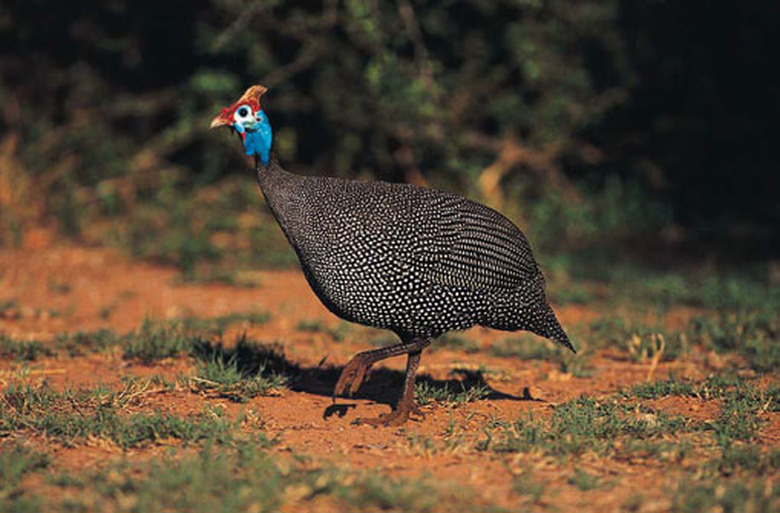What Animals Eat Deer Ticks?
Deer ticks, or the black-legged tick, which are prevalent in the wooded and grassy areas of the northern United States, are notorious for transmitting Lyme disease, but also can infect people with powassan encephalitis, babesiosis and human anaplasmosis. Poultry are the natural predators of ticks, and homeowners wishing to reduce the number of ticks in their yards have raised guinea fowl, chickens and turkeys as a natural pest control.
Guinea Fowl
Guinea Fowl
Guinea fowl are native to Africa, but are pet poultry in the United States because of their pest control abilities. The birds' diet consists mainly of insects, including ticks and some weeds.Guinea fowl work well for deer tick control because they are territorial and will roam in a pack in one area. While they prefer grassy areas, they will hunt for insects in brush and along the borders of woody areas. Potential guinea owners will need a large area of land since the birds roam, and owners should make sure there are no zoning laws in their town regarding keeping poultry in their yard. Guineas have a loud cry that may annoy neighbors and are susceptible to attacks from raccoons and opposum.
Chickens
Chickens
Chickens like to eat what is easily accessible in the grass, making ticks a prime target since they like to climb to the tops of grasses to hitchhike on passing animals and people. Chickens will only be effective pest control if they are allowed to roam your yard to eat what they find, but this could result in some damage to your landscaping or garden because chickens like to scratch. They get along with guinea fowl, and are effective in pulling ticks off livestock. As with guinea fowl, ownership of chickens may be restricted by local zoning ordinances. Chickens shouldn't be allowed to roam in areas where chemical pest control has been used because it can kill them.
Wild Turkeys
Wild Turkeys
Tales tell of wild turkeys eating ticks, but there is no clear evidence that wild turkeys reduce the deer tick population. A study by Richard Ostfeld and David Lewis published in the "Journal of Vector Ecology" determined that wild turkeys did not act as major carriers of ticks, but didn't significantly reduce the deer tick population either. Some people raise and release wild turkeys as part of their poultry pest control plan, though Ostfeld speaks against this in another study, warning that they can be carriers of other types of ticks.
Others
Others
Natural predators of ticks also include wild song birds, amphibians such as frogs and lizards, insects such as fire ants, and nematodes or microscopic round worms.
Cite This Article
MLA
Faust, Eileen. "What Animals Eat Deer Ticks?" sciencing.com, https://www.sciencing.com/what-animals-eat-deer-ticks-13406201/. 21 July 2017.
APA
Faust, Eileen. (2017, July 21). What Animals Eat Deer Ticks?. sciencing.com. Retrieved from https://www.sciencing.com/what-animals-eat-deer-ticks-13406201/
Chicago
Faust, Eileen. What Animals Eat Deer Ticks? last modified March 24, 2022. https://www.sciencing.com/what-animals-eat-deer-ticks-13406201/
